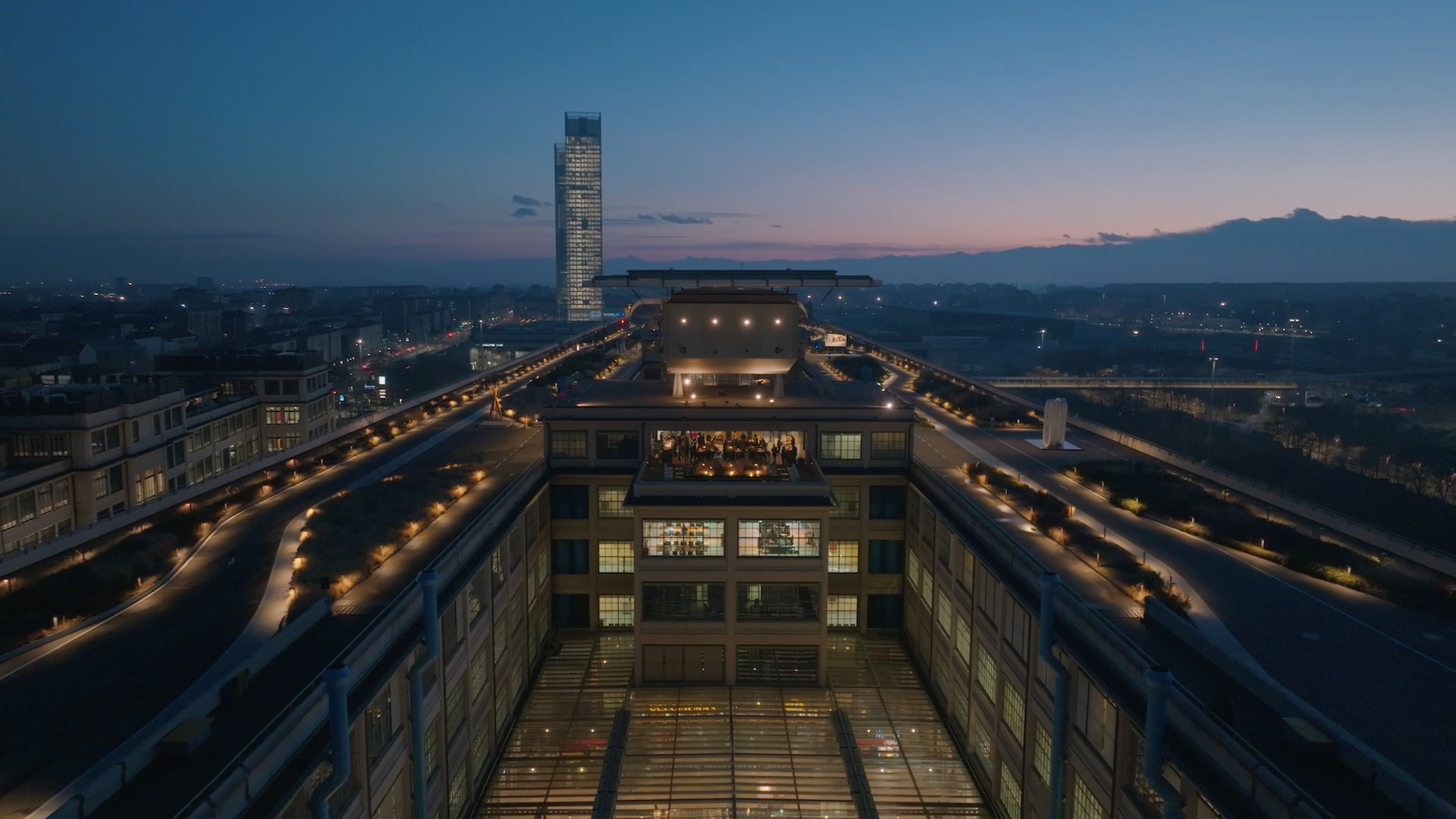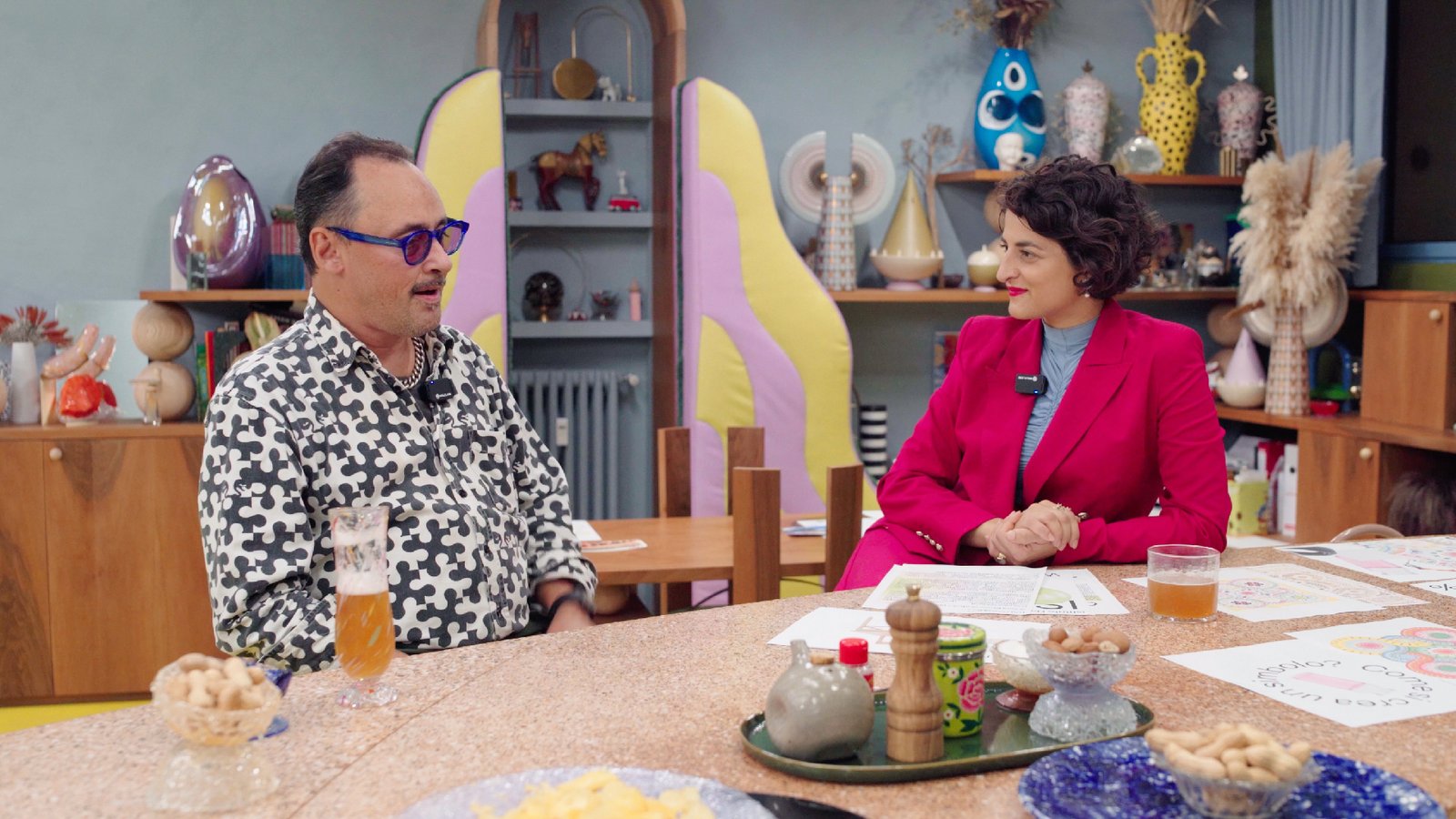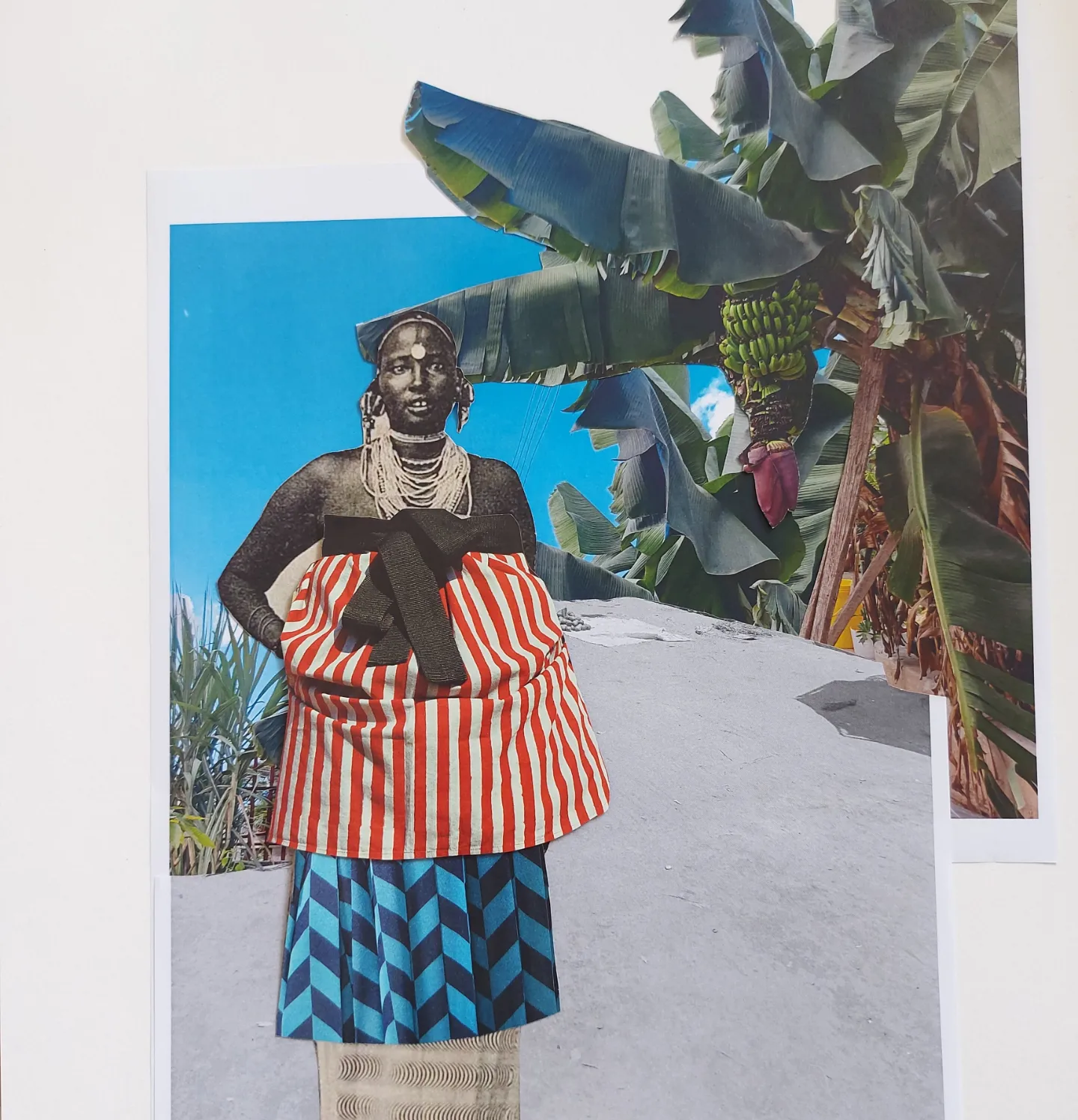
Nkumbu Mutambo and Speculative African Fashion
Nkumbu Mutambo’s Radical Method Across Zambezia, Identity, and Archival Design: A Journey Through Heritage and Radical Imaginaries of African Fashion.
Nkumbu Mutambo’s works as a designer, researcher, and artist navigate the intricate terrain between dress, memory, identity, and cultural heritage. With a practice spanning speculative design, archival inquiry, and community-rooted research, she interrogates how fashion can serve as both a personal and political language. Her doctoral research at Northumbria University examined the role and meaning of heritage for Zambian fashion designers, exploring how the past is reframed, revisited, and reimagined through design and embodied practice. A key finding of her study was the mutability of individual and collective memory—how designers continually negotiate their personal and national narratives in an ongoing process of self-definition and cultural expression.
Mutambo’s work responds to an urgent need in the field of design: the need to fill in the silences left by dominant historical narratives, which have often excluded or misrepresented African fashion and material culture. Through both her scholarship and creative projects, she addresses these absences, not only by uncovering lost stories, but by proposing new ways of remembering—ones that are grounded in lived experience, oral histories, and the speculative imagination. Her approach resists linearity and objectification, favouring instead a relational understanding of dress as a cultural practice deeply enmeshed with memory, identity, and place. This way of working resonates with a broader conceptual framework described as Radical Zambezian Reimagination: a self-composed methodology that rethinks spatial, cultural, and ecological imaginaries through the lens of communities shaped by the Zambezi River. Rather than referring to a fixed historical or national geography, Zambezia is invoked here as a term of futurity—an alternative to the nation-state that foregrounds fluid, non-statal modes of belonging and interconnection. It is an invocation of river thinking, where knowledge flows in multiple directions, shaped by seasonal rhythms, ecological interdependence, and spiritual kinship.
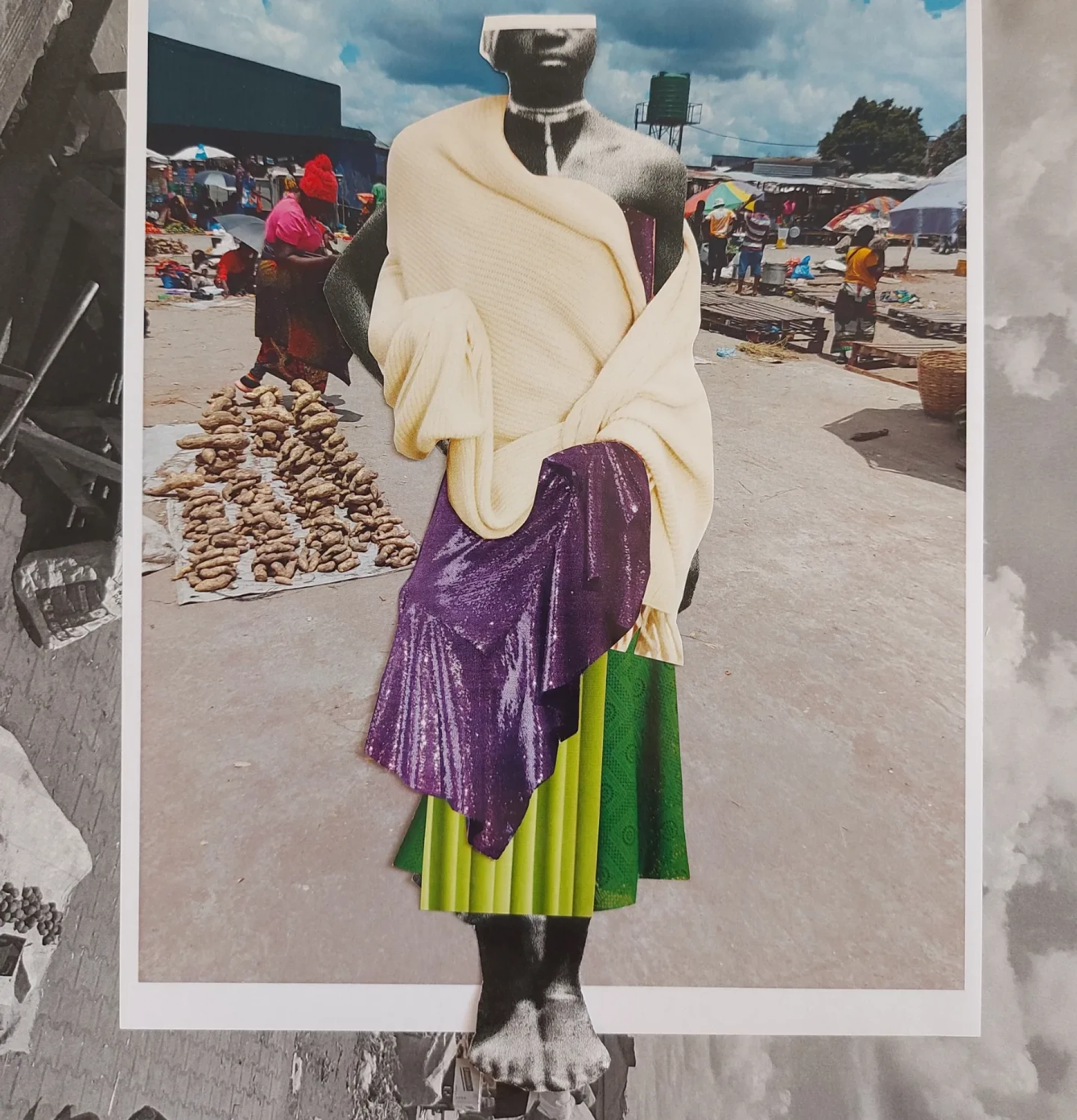 Ndola 1, 2024 (paper)
Ndola 1, 2024 (paper)
Rooted in the Latin etymology of the word radical—from radix, meaning “root”—Radical Zambezian Reimagination invites a grounded yet expansive way of thinking. It gestures toward ancestral memory while embracing speculation and transformation. It draws from deep-rooted knowledge systems while remaining open to becoming otherwise. This methodology is not attributed to Mutambo herself, but offers a lens through which her work can be meaningfully situated. Her creative practice exemplifies how speculative design can operate as a site of re-rooting, a process of returning to cultural, familial, and spiritual lineages in ways that resist colonial categorisations and economic reductionism.
One of the most evocative examples of this is her Analog Sketches series—a body of speculative fashion drawings that move beyond the limits of commercial fashion frameworks. These works propose garments and adornments that may never exist in material form, but which nonetheless perform the vital function of world-building. In a 2020 reflection on the series, Mutambo wrote, “In case you’re wondering if these have a point, I think for me it’s primarily about relocating myself in the idea of fashion. Placing an African body outside the limits of what is and what is expected.” This gesture is not simply about aesthetics, but about carving out imaginative space in which African identities are not defined by absence, trauma, or exoticisation, but by agency, curiosity, and invention.
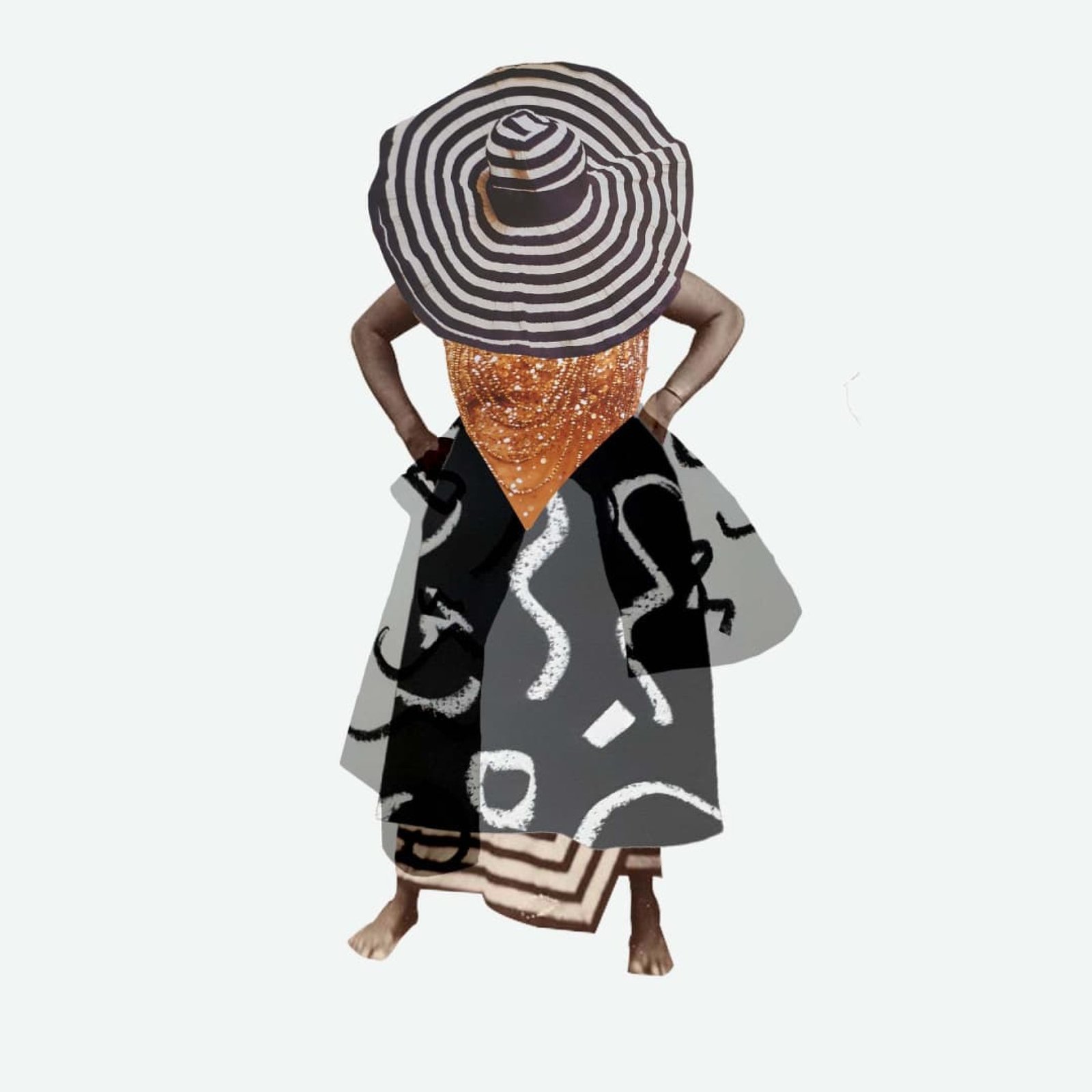 Say it loud, 2021 (mixed media)
Say it loud, 2021 (mixed media)
Through speculative design, Mutambo engages in acts of remembering that do not rely on institutional archives, but on embodied knowledge, cultural fragments, and the potentialities of untold stories. This form of remembering is not nostalgic—it is generative. It does not seek to recover a pure or fixed past, but to affirm the fluidity of memory and the multiplicity of futures that can emerge from it. By foregrounding the ways in which dress practices are shaped by histories of colonialism, migration, and resistance, her work opens up new possibilities for fashion as a space of critical engagement and cultural reclamation.
In this sense, Mutambo’s practice can be seen as flowing alongside Radical Zambezian Reimagination—a methodology that foregrounds relation over rupture, and reimagining over replication. Like a tributary joining a larger river system, her work contributes to a broader current of Southern African cultural thought that seeks to de-centre Eurocentric models of knowledge and creativity. It reflects a turn toward ecologies of memory and imagination that are rooted in place, but reach beyond it—toward other waters, other bodies, and other ways of being.
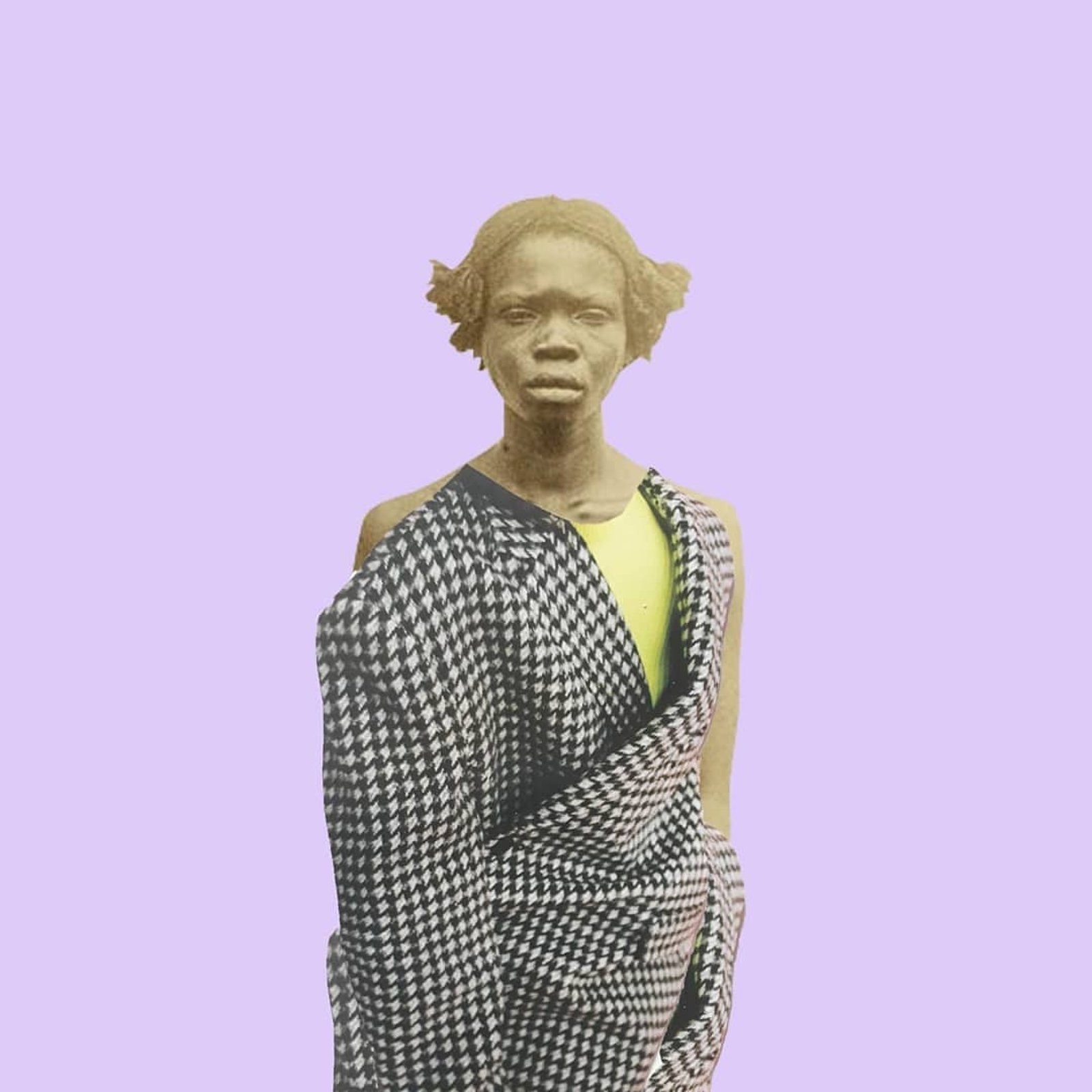 Untitled, 2021 (mixed media)
Untitled, 2021 (mixed media)
Such an orientation is particularly significant in a global creative landscape still struggling to dismantle the hierarchies inherited from colonial systems of knowledge production. By challenging dominant narratives of what fashion is and who it is for, Mutambo contributes to a necessary shift in the field—one that embraces plurality, embraces ancestry, and embraces speculation as a legitimate and vital mode of inquiry. Her work reminds us that creative expression is not only about making objects, but about making meaning, building connections, and reweaving the fragmented threads of our histories into something whole.
Nkumbu Mutambo’s contributions extend beyond individual garments or research outputs. They offer a vision of design as a knowledge system—alive, relational, and grounded in the realities and dreams of people too often excluded from its canon. In tracing new paths through the design landscape, her work suggests that memory, imagination, and identity are not fixed points but movements—radical in their return to the root, and expansive in their reach across riverine, regional, and global flows.
Cover image: Ndola 2, 2024 (paper)
Chona’s current artistic practice is expressed through earth-based alchemy, a process which involves using natural materials such as plants and soils in producing bodies of work which combine ancestral baTonga knowledge and contemporary experimental techniques. Visual poetry is another expression of Chona’s artistic practice. Collages are used as mediums alluding to the intersections of ancestral histories, the present-day and the future of baTonga. Anthropological photographs are often used alongside objects, images and histories of personal accord.Her research and curatorial practice are geared towards the unearthing and exploration of themes of identity, memory, and resistance grounded in a sense of storytelling and healing through alternative mediums. In its entirety Chona’s practice is grounded in the self-composed methodology of Radical Zambezian Reimagination.


